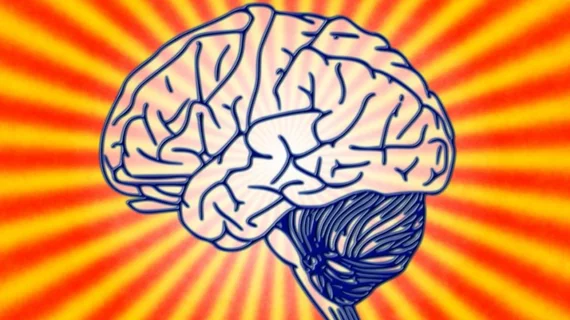MRI scans help show how our brains are ‘washed’ during sleep
When we go to sleep at night, our brains are wiped clean of harmful toxins. Boston-area researchers now have the evidence to prove it, thanks in part to high-resolution imaging.
Neuroscientists from Boston University are the first to capture the process of liquid cerebrospinal fluid (CSF) washing over the brain in pulsing waves to rid it of the day’s toxins. They believe the findings can eventually offer insight into conditions often associated with sleep disorders, such as autism and Alzheimer’s disease.
“We’ve known for a while that there are these electrical waves of activity in the neurons,” co-author Laura Lewis, a BU College of Engineering assistant professor of biomedical engineering, said in a news piece published by the university. “But before now, we didn’t realize that there are actually waves in the CSF, too.”
As people get older, their brains typically produce fewer slow-wave brain waves, which may affect the blood flow in the brain and reduce CSF pulsing during the sleep cycle. These processes, while historically studied as separate phenomena, now appear to be closely related, and may help explain why toxic proteins buildup over time and lead to a loss of memory.
To come to their conclusions, Lewis and colleagues had 13 patients between the ages of 23 and 33 fall asleep inside of an MRI machine while wearing an electroencephalogram cap to measure brain activity.
In addition to finding a link between CSF pulsing, brain waves and blood flow, Lewis said one of the most “fascinating” findings of the study is their newfound ability to identify if a person is sleeping by looking at a small amount of CSF on a brain scan.
“It’s such a dramatic effect,” Lewis said. CSF pulsating during the night “was something we didn’t know happened at all, and now we can just glance at one brain region and immediately have a readout of the brain state someone’s in.”
Going forward, Lewis and her team plan to understand how it is that brain waves, blood flow and CSF operate so perfectly in sync with one another.
The full study was published Nov. 1 in Science. You can also view a video of CSF washing over the brain here.

